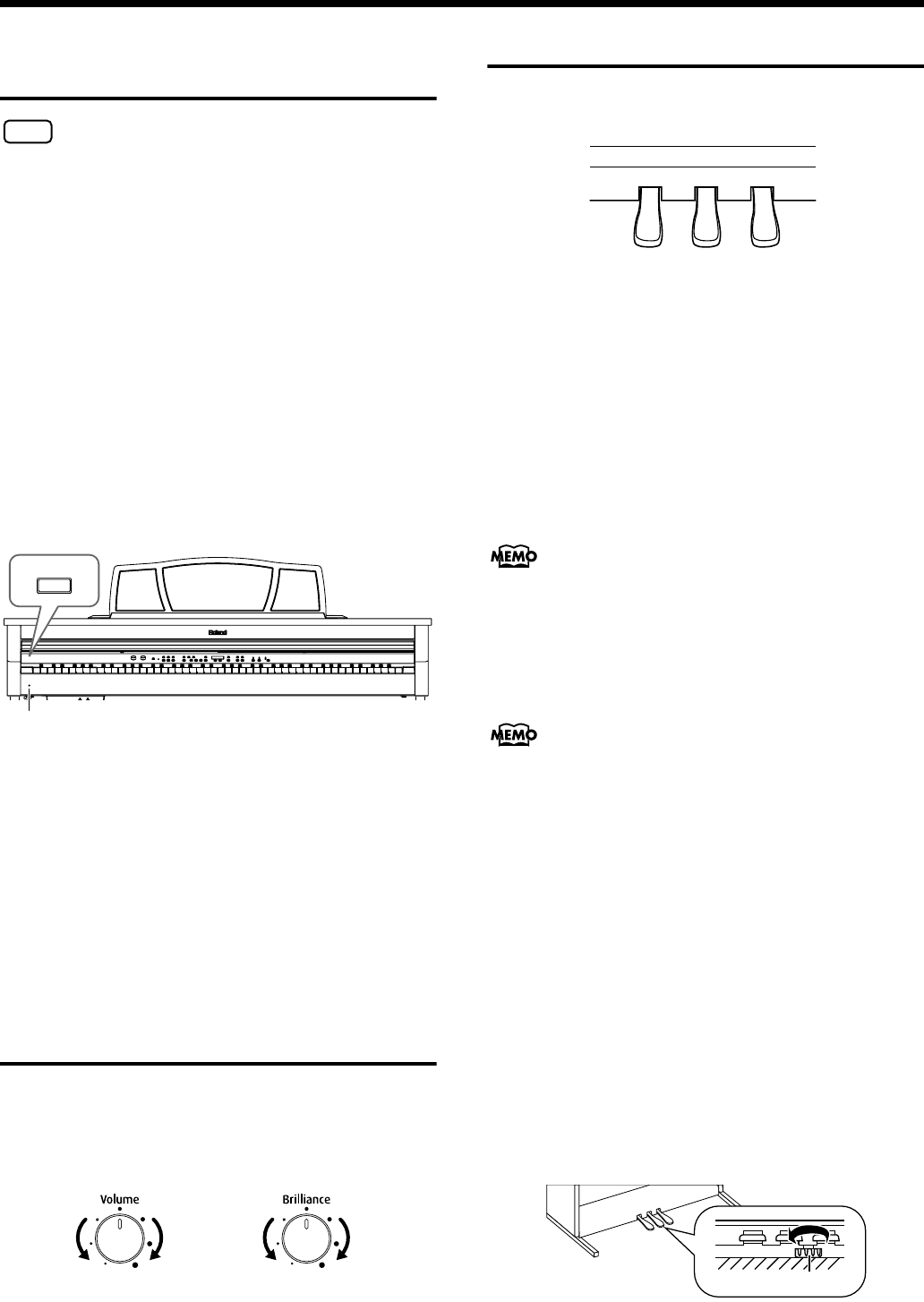
14
Before You Start Playing
Turning the Power On and
Off
NOTE
Turn on power to your various devices in the order
specified. By turning on devices in the wrong order, you
risk causing malfunction and/or damage to speakers
and other devices.
To turn the power on, turn the [Volume] knob all the
way down, and then press the [Power On] switch.
The power will turn on, and the Power indicator at the
left front of the HP107 will light.
After a few seconds, you will be able to play the
keyboard to produce sound.
Use the [Volume] knob to adjust the volume.
* This unit is equipped with a protection circuit. A brief interval
(a few seconds) after power up is required before the unit will
operate normally.
fig.00-06.e
To turn the power off, turn the [Volume] knob all the
way to the left, and press the [Power On] switch.
The Power indicator at the left front of the HP107 will go
dark, and the power will be turned off.
* If you need to turn off the power completely, first turn off the
[POWER] switch, then unplug the power cord from the power
outlet. Refer to “Power Supply” (p. 5).
f
Adjusting the Sound’s
Volume and Brilliance
Turn the [Volume] knob to adjust the overall volume.
Turn the [Brilliance] knob to adjust the brightness of
the sound.
fig.00-07.e
About the Pedals
The pedals have the following functions, and are used
mainly for piano performance.
fig.00-08.e
Damper pedal (right pedal)
While this pedal is pressed, notes will be sustained even after
you take your fingers off the keys.
The length of sustain will change subtly depending on how
deeply you press the pedal.
On an acoustic piano, holding down the damper pedal will
allow the remaining strings to resonate in sympathy with the
sounds that you played from the keyboard, adding a rich
resonance.
The HP107 simulates this damper resonance.
You can change the amount of resonance applied with
the damper pedal (p. 20).
Sostenuto pedal (center pedal)
This pedal sustains only the sounds of the keys that were
already played when you pressed the pedal.
You can switch the function of the sostenuto pedal (p.
31).
Soft pedal (left pedal)
When you hold down this pedal and play the keyboard, the
sound will have a softer tone.
The softness of the tone can be varied subtly by the depth to
which you press the pedal.
About the adjuster
Be sure to use the adjusters underneath the pedals whenever
the instrument is moved or when the pedals appear to be
unstable.
❍
Rotate the adjuster to lower it so that it is in firm contact
with the floor. If there is a gap between the pedals and
the floor, the pedals may be damaged. In particular
when placing the instrument on carpet, adjust this so
that the pedals firmly contact the floor.
fig.00-09.j
Power On
Power Indicator
Min Max
Mellow
Bright
Soft Pedal
Sostenuto Pedal
Damper Pedal
Adjuster
HP107_e.book 14 ページ 2005年7月25日 月曜日 午後4時50分


















